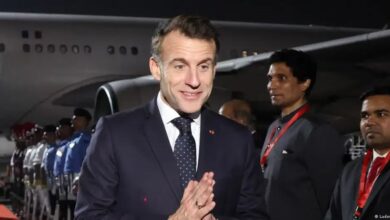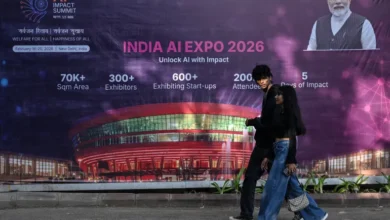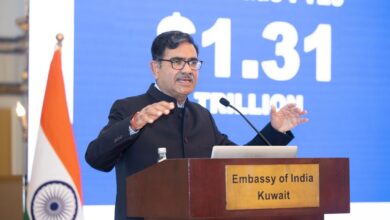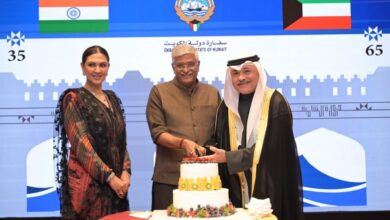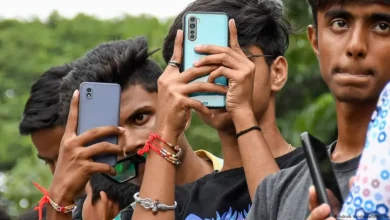India’s Teesta River Development Project Will Permanently Resolve Water Sharing with Bangladesh

Bilateral relations between Bangladesh and India have flourished, given the political will of the two countries. Both have forged development partnerships, and the Indian-funded projects are monitored by the foreign ministers of the two countries to hasten the process so that the delay in implementing the projects can be addressed at the highest level. Prime Minister Sheikh Hasina was the first guest on a bilateral visit India received after Prime Minister Narendra Modi formed the government for a third term.
Sheikh Hasina’s recent visit to New Delhi, due since she assumed office for the fourth term in January 2024, witnessed decided progress on the Teesta River water sharing arrangement. India has offered a US$1 billion comprehensive management and restoration project for the Teesta River, within a mutually agreed-upon timeframe. Following her state visit to India on June 21 and 22, Hasina described her trip as “very fruitful” and said the outcome of her talks with India’s top leadership will play a “pivotal role” in strengthening the existing bilateral relations and opening new avenues of cooperation.
After his visit to New Delhi and Kolkata earlier this year, Foreign Minister Hasan Mahmud had expressed confidence that Dhaka and New Delhi will advance the discussion on the much-awaited Teesta water sharing treaty after India’s general election, “You know we have taken on a big project on the Teesta. India wants to finance that. We said the project will have to be in accordance with our needs; it must fulfil our needs.”
The Teesta River originates in the Teesta Kangse glacier and flows through Sikkim and West Bengal before entering Bangladesh. Water-sharing between India and Bangladesh, has remained unresolved because it has been bogged down by India’s federal politics, making it difficult to reach an international agreement. These issues have already also been hotly debated in Bangladesh, with the opposition BNP attacking the government in strong terms – but India remains very confident that these measures will definitely be implemented and will benefit the people of both countries. The Ganges water treaty will expire in 2026. Both countries have set up a joint technical committee to examine the renewal of this treaty. Meanwhile, in a letter to Prime Minister Modi, the West Bengal Chief Minister has raised the state’s concerns regarding water sharing with Bangladesh.
Soon after returning to Bangladesh, Prime Minister Hasina announced that her country would accept India’s proposal to develop the Teesta River basin. Addressing a press conference at her office, Ganabhaban in Dhaka, Hasina said “India has agreed to cooperate with us on the Teesta project. A joint committee will be formed to decide not only how the water will be shared but also how to revive the river, use it for cultivation in the northern region, and enhance its navigation.” She said the water-sharing discussion included river dredging, constructing embankments and water conservation measures as well. “India will send a technical team after the 1996 Ganges water treaty expires in 2026. The team (with their Bangladesh counterparts) will explore options and negotiate the terms,” she added.
It may be noted that Beijing had also proposed implementation of Dhaka’s Teesta River Comprehensive Management and Restoration project, worth US$ 1 billion. However, given the conditionality of the Chinese Line of Credit (LOC), Dhaka has chosen to select India’s loan offer, considering Bangladesh’s repayment capacity. Indian LOC is more soft loan than China. PM Hasina emphasised that the Teesta basin development project is an old initiative of Bangladesh, and the country’s decision to accept India’s proposal aligns with their broader developmental goals.
Former Foreign Minister AK Abdul Momen has reiterated the importance of signing the Teesta water sharing agreement with India, saying that Bangladesh and India share 54 rivers and they are keen on working together on joint management of all rivers. “Joint management is necessary for the wellbeing of people of both sides, the entire basin area.”
On the question of ‘rail transit’, India has directly said that this step is aimed at elevating ‘multidimensional’ connectivity between the two countries to the next level. At the same time, the ‘technical committee’ of the two countries has indicated that the ‘technical committee’ of the two countries will discuss the details of the fees, duties or transit fees to be collected if Indian trains run through the territory of Bangladesh and how to ensure security arrangements in those trains.
Indian Foreign Secretary Vinay Mohan Kwatra outlined the outlines of the two projects during a briefing soon after Prime Minister Hasina and Prime Minister Modi met in New Delhi on June 22. On the Teesta project, Kwatra said the focus of the project is water management and conservation, but the move has nothing to do with the proposed Teesta water-sharing agreement. On rail transit, he said, “It’s like going from one part of India to another, where the train goes through the territory of Bangladesh.” “It will enrich the people and economies of both Bangladesh and India.” He also announced that a trial run of freight trains on the route from Gede-Darshana border to Chilahati-Haldibari border will be conducted in July.
When questioned if the rate of duty Bangladesh will have to pay in exchange for allowing movement on this route has been decided, at the regular weekly briefing of India’s Ministry of External Affairs, spokesperson Randhir Jaiswal responded, “We are gradually strengthening connectivity between our two countries in physical, digital and other ways – this rail link is an important step in that which will promote trade and people-to-people ties between the two countries.”
On the question of transit fees and security, he said, “These are the technical aspects of the project. When the two governments of our two countries will form a technical committee for this project, these issues will be discussed in the meeting of that committee.” There was a clear indication that there was no discussion or decision yet on transit fees or fees, or which country’s security guards would be deployed on trains.
PM Hasina’s recent visit is important for several reasons. First, high-level engagement between the two countries always helps in building trust and confidence and ironing out differences on issues. Both countries emphasised “future-oriented partnership”, and Bangladesh is indeed an “indispensable partner in the development of India’s northeastern region”. The Bangladesh, Bhutan, India, Nepal (BBIN) connectivity was emphasised as the two countries decided to commence goods-train service from Gede-Darshana through Chilahati-Haldibari up to Hasimara via Dalgaon railhead near the Bhutan border. India will provide financial assistance to the Katihar-Parbatipur-Bornagar interlink for grid connectivity.
Under such circumstances, India’s reported proposal to construct a reservoir on the Teesta River is promising. If the initiative materialises, it will solve a major stumbling block in India-Bangladesh ties. To oversee the project a new Assistant High commissioner consulate is being opened. India and Bangladesh with their geographical contiguity and shared resources are natural partners and cooperation between the two countries is directly proportional to their mutual development.
Source: The Asian Age







